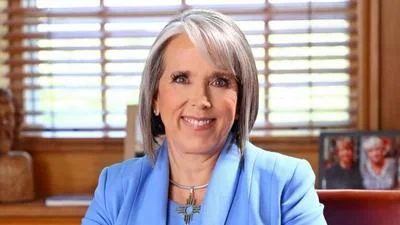After nearly three years of studying the effects of Long COVID, a variety of symptoms that linger after a SARS-CoV-2 infection, clinicians at The University of New Mexico (UNM) are utilizing research findings to enhance and improve treatment plans for patients.
In late 2021, UNM joined two large national studies through the RECOVER (Researching COVID to Enhance Recovery) Initiative, funded by the National Institutes of Health (NIH). According to co-principal investigator Michelle Harkins, MD, division chief of pulmonary, critical care, and sleep medicine at the UNM School of Medicine, the NIH has invested about a billion dollars into identifying and understanding Long COVID.
Harkins stated that the RECOVER program has enrolled 12,599 adults and 14,131 children into the research. Currently, New Mexico has enrolled 148 adults with about 42% identifying as Hispanic or Chicano and 79 pediatric patients with about 50% identifying as Hispanic or Chicano.
“Having a diverse group is important to the research. When you look at which demographics got hit the hardest across the nation—African-Americans, Hispanics, and Native Americans were disproportionately affected,” said Harkins.
Matt Kadish, MD, assistant professor of general pediatrics at the UNM School of Medicine and co-PI of the RECOVER study focusing on pediatric patients, emphasized that enrolling children and teens is crucial because this group may present symptoms not commonly seen in adults.
“Children and teens are not immune from Long COVID," Kadish explained. "For example, if a middle school-aged pre-teen is showing signs of withdrawal, mood changes, and anxiety, we need to really examine—are these symptoms that can be attributed to Long COVID? Or are these symptoms common to hormonal changes during puberty?”
The studies involve reviewing medical records and diagnostic screenings to better understand how people experience long-lasting symptoms after a COVID diagnosis and understanding their biological causes.
According to Harkins, common Long COVID symptoms in adults include post-exertional malaise where small activities can lead to fatigue lasting days or weeks. Researchers have found muscle tissue damage in many cases. Patients also report severe chronic fatigue without preceding activities and cognitive function impairments such as brain fog. In some cases, depression or ADHD symptoms have worsened post-COVID.
“We’ve heard from business executives who functioned at a very high level before COVID but now say their inability to focus has seriously damaged their careers,” Harkins noted. “And we’ve heard from marathon runners who now find it difficult to play with their children.”
Harkins and Kadish believe Long COVID symptoms have increased behavioral health concerns with more instances of panic attacks, depression, and anxiety.
Applying Research Findings
As early as summer 2020, patients in the UNM Health System reported extreme fatigue following COVID infections. Consequently, UNM Hospital established a clinic dedicated to caring for these patients.
“Many patients were worried they wouldn’t be believed for their reported symptoms,” said Alisha Parada, MD, co-PI of UNM’s RECOVER study and medical director of the Long COVID clinic at UNM Hospital. “These people felt stigmatized; even their families did not believe them.”
Many participants in the RECOVER study came through Parada’s clinic. This allowed her team to use patient data for analysis on a national scale to tailor individualized treatment plans.
“The discoveries about Long COVID have been incredibly valuable,” Parada stated. “To my patients it has created validation... Now there is science proving Long COVID symptoms are real.”
With more data from RECOVER studies available for use in clinical practice:
1. Goal Setting: Parada begins by listening to each patient's needs.
2. Symptom Management: She evaluates current medications and health concerns.
3. Specialist Referrals: Patients may be referred to other areas including behavioral health or neurology.
“Treatment plans are often multi-disciplinary and always individualized; there’s no one-size-fits-all,” Parada emphasized.
Continued Efforts
In January 2024 Sen. Bernie Sanders (I-VT) invited Harkins to testify before the U.S Senate Health Education Labor Pensions Committee regarding Long COVID research priorities:
1. Use Project ECHO model nationally.
2. More funding for research.
3. Legislation easing access.
4. Funding clinical trial networks.
5. Building infrastructure including national centers.
“Very few clinics exist nationwide,” Harkins told Congress emphasizing multidisciplinary approaches needed within localities beyond big cities like Albuquerque's single clinic at UNM hospital alone."
Parada acknowledged being an "army-of-one" citing far exceeded demands requiring broader support moving forward according future treatment efficacy shown through ongoing collected data reflecting positive impacts helping address substantial needs among growing populations facing enduring conditions resulting lingering pandemic aftermaths experienced globally still today."









